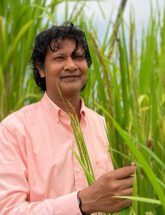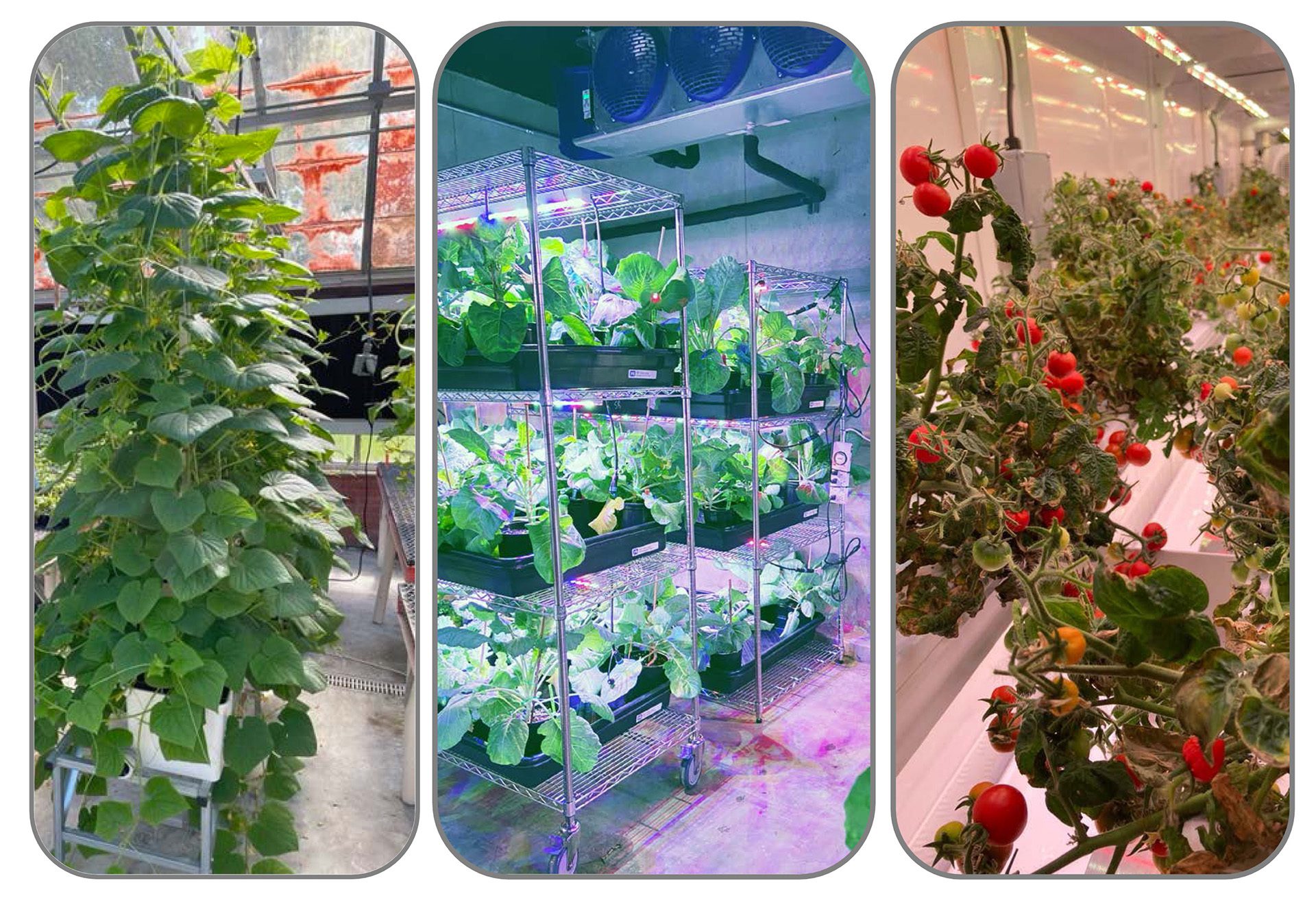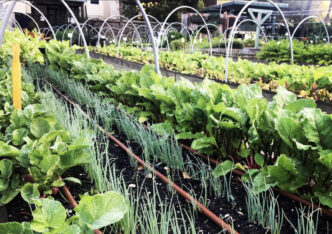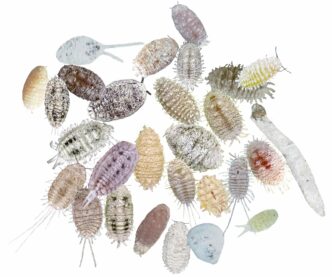A limited amount of freshwater threatens agriculture production and food security, but researchers believe some crops can be grown sustainably in saline water if proper techniques are used.
The researchers are from Clemson University, the University of Florida and the United States Department of Agriculture’s Agricultural Research Service. Led by Clemson professor Raghupathy Karthikeyan, the research team has received a $10 million grant from the United States Department of Agriculture National Institute of Food and Agriculture (USDA NIFA) to study development of a controlled environment agriculture (CEA) platform for growing salt-tolerant crops – mustard greens, cucumbers and tomatoes – using saline water for irrigation.

“In many freshwater-scarce regions, saline water sources such as brackish groundwater are available and can be used for irrigation,” said Karthikeyan, Newman Endowed Chair Professor of Natural Resources Engineering and project director. “However, increased soil and land salinization restricts use of these water sources in traditional open field cultivation, a problem that can be reduced by using hydroponic (soilless) cultivation in CEA. Several high-value food crops are salt sensitive but can be made more salt tolerant through breeding.”
CEA covers a variety of systems, including greenhouses and modular containers, that take a technology-based approach to farming. These systems are designed to provide optimal growing conditions for crops and prevent disease and pest damage. Hydroponic agriculture is using a water-based nutrient solution rather than soil to grow plants.

“By using desalination techniques that are appropriate to the agricultural sector coupled with effective management of water, nutrients and fertilizers, as well as salinity, we believe we can grow salt-tolerant crops sustainably according to both economic and environmental metrics,” said Gary Amy, dean distinguished professor in the Clemson Department of Environmental Engineering and Earth Sciences. “We are advocating partial desalination technologies to produce tailored-quality irrigation water to match the salt tolerance of a target crop.”
The overall goal is to develop a hydroponics CEA platform for cultivating salt-tolerant food crops using saline irrigation water while ensuring no environmental impacts associated with salinity are created.
“We will do this by enhancing crop salt tolerance through breeding, developing new concepts in agricultural desalting technologies and optimizing salinity management,” Karthikeyan said.
Knowledge gained from this study will help growers use marginal quality water for year-round production.
Controlled environment agriculture has a market value of more than $70 billion. This amount is expected to increase as CEA use increases.
The study will be conducted in vegetable-growing areas of South Carolina and Florida and will be extended to Arizona. Objectives of the 5-year research, education and Extension project, which begins on April 1, include developing a hydroponic CEA platform, using saline waters for irrigation, managing salinity to better align with crop responses as the crops become acclimated to high salinity and selecting mustard greens, cucumber and tomato varieties for enhanced salt tolerance.
This grant is part of a $70 million dollar investment from the USDA to establish robust, resilient, and climate-smart food and agricultural systems.
In addition to Karthikeyan and Amy, other Clemson researchers include Jeff Adelberg, Sandra Branham, David Ladner and Michael Carbajales-Dale. These researchers provide expertise in horticulture, plant breeding, water science and technology, and life cycle assessment. Dale Layfield and Kenneth Robinson will lead education and Cooperative Extension Service activities.
Researchers from the University of Florida are Melanie Correll, Elias Bassil, Ray Huffaker and Haimanote Bayabil. Rama Radhakrishna is a researcher from Purdue University. C.S. Kousik, Kai-Shu Ling, and Clinton Williams from the United States Department of Agriculture Agricultural Research Service also are involved.
Information from the United States Department of Agriculture Economic Research Service shows agriculture accounts for much of the total freshwater consumption in the United States. Irrigated crop production helps support local rural economies and contributes to the nation’s livestock, food processing, transportation and energy sectors.
-END-







